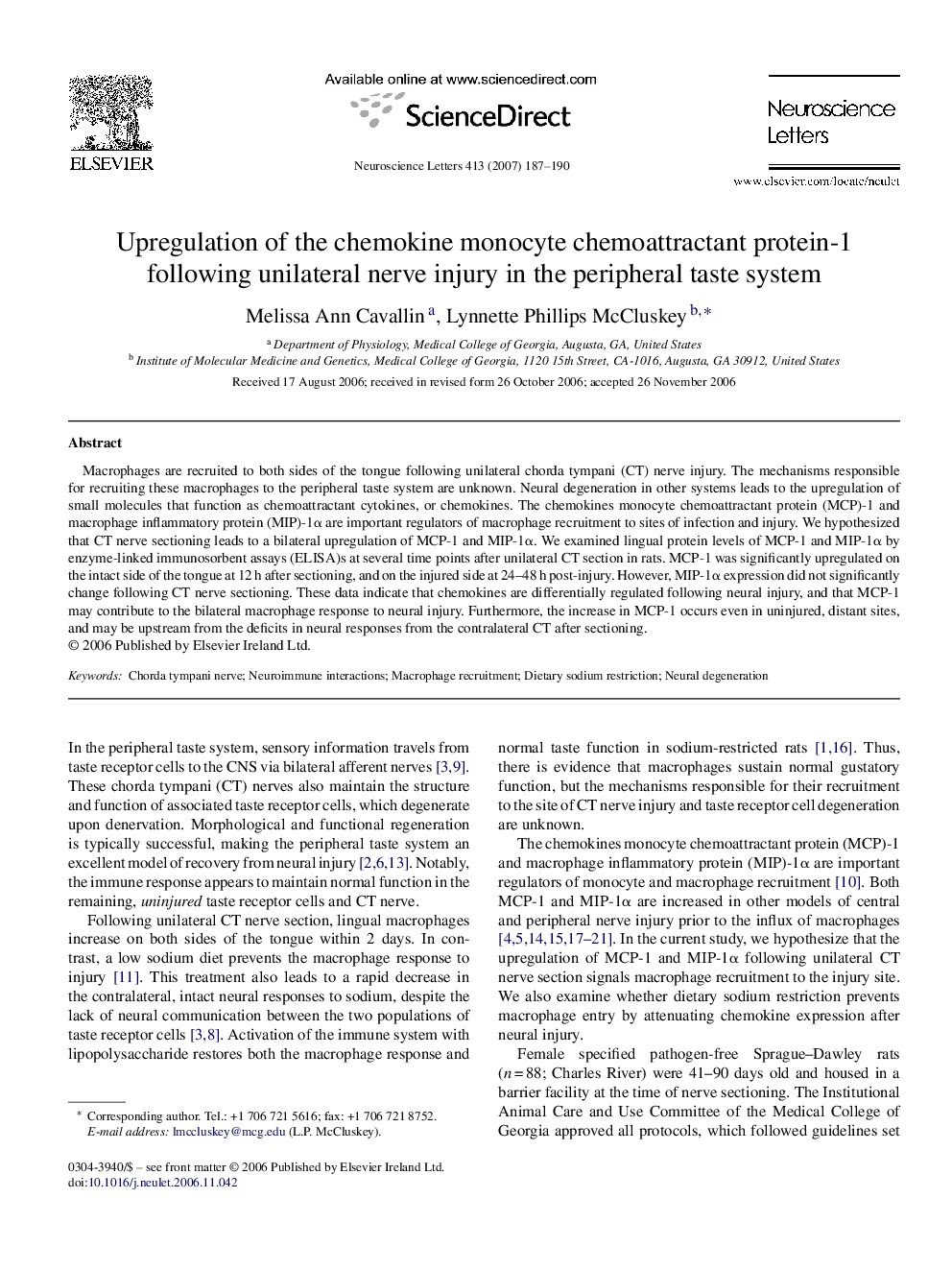| Article ID | Journal | Published Year | Pages | File Type |
|---|---|---|---|---|
| 4349945 | Neuroscience Letters | 2007 | 4 Pages |
Macrophages are recruited to both sides of the tongue following unilateral chorda tympani (CT) nerve injury. The mechanisms responsible for recruiting these macrophages to the peripheral taste system are unknown. Neural degeneration in other systems leads to the upregulation of small molecules that function as chemoattractant cytokines, or chemokines. The chemokines monocyte chemoattractant protein (MCP)-1 and macrophage inflammatory protein (MIP)-1α are important regulators of macrophage recruitment to sites of infection and injury. We hypothesized that CT nerve sectioning leads to a bilateral upregulation of MCP-1 and MIP-1α. We examined lingual protein levels of MCP-1 and MIP-1α by enzyme-linked immunosorbent assays (ELISA)s at several time points after unilateral CT section in rats. MCP-1 was significantly upregulated on the intact side of the tongue at 12 h after sectioning, and on the injured side at 24–48 h post-injury. However, MIP-1α expression did not significantly change following CT nerve sectioning. These data indicate that chemokines are differentially regulated following neural injury, and that MCP-1 may contribute to the bilateral macrophage response to neural injury. Furthermore, the increase in MCP-1 occurs even in uninjured, distant sites, and may be upstream from the deficits in neural responses from the contralateral CT after sectioning.
